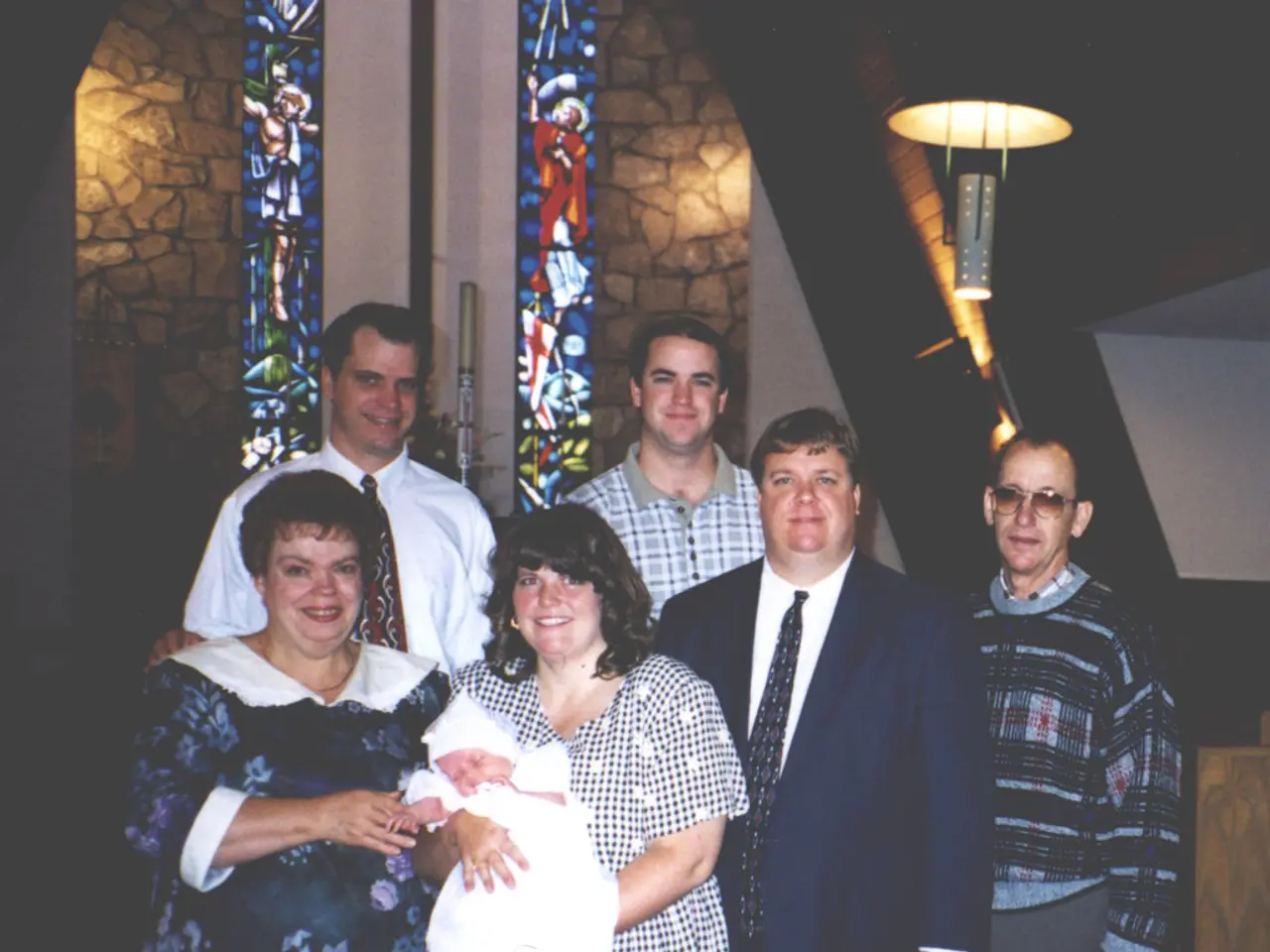Emergency situations do not require abortion, according to medical professionals' assertions.
In the complex world of pregnancy and healthcare, understanding the nuances of ethical treatment, particularly in challenging situations, is crucial. Here's a guide to help clarify some common misconceptions and provide insights into the Church's stance on these matters.
Firstly, it's essential to clarify that ethical treatment for an ectopic pregnancy, which occurs outside the womb, is not considered an abortion. Such treatment may involve the removal of the damaged fallopian tube containing the embryo or the use of medication to resolve the ectopic pregnancy. The goal is to save the mother's life, not to end the baby's life.
Abortion, defined as an act with the intent to end human life in the womb, is never medically necessary, according to medical doctors and Catholic experts. The Church encourages pastors, pro-life family, and friends to be aware of these nuances to better help women facing life-threatening situations and to advocate for ethical treatments.
Operations, treatments, and medications that have as their direct purpose the cure of a proportionately serious pathological condition of a pregnant woman are permitted if they cannot be safely postponed until the child is viable, even if they will result in the death of the unborn child. This principle is outlined in the U.S. bishops' Ethical and Religious Directives for Catholic Health Care Services.
The Catechism of the Catholic Church recognizes the inherent dignity of the human person beginning at conception and condemns any "crime against human life," such as abortion. However, the Church's directives state that treatments to save the life of the mother are justified if everything is done to also save the child, and there is no other option available.
In emergency situations, the goal should be to save both the mother and the unborn baby, as stated by Bishop Daniel E. Thomas of Toledo. Examples of interventions that are not considered abortions include those that are intended to save the life of the mother, even if they indirectly lead to the death of the unborn baby.
The term "emergency abortion" is often used by abortion supporters to describe situations where a mother's life is at risk, but these experts argue that it is a misnomer. More recently, over 95% of abortions are for "elective and unspecified reasons" rather than "risk to the woman's life or a major bodily function" or "abnormality in the unborn baby."
In the case of miscarriage management, the purpose of the physician's interventions is to help the mother's body safely pass the baby's body and pregnancy tissue. AAPLOG recommends referring to interventions that separate a mother and her baby in certain circumstances as "maternal-fetal separations" due to the clear difference of intent between these lifesaving treatments and induced abortion.
If a woman has been told to abort her baby, she should seek a second opinion and consider turning to the Catholic Medical Association or AAPLOG for support. The search results do not provide information on treatments recommended by Catholic experts as alternatives to abortion induction in life-threatening situations for the mother or unborn child.
The principle of double effect, attributed to St. Thomas Aquinas, is used to evaluate actions intended for a good purpose that can have foreseen but unintended bad effects. This principle plays a significant role in the Church's ethical considerations regarding healthcare and pregnancy.
In conclusion, it's essential to approach these complex issues with a clear understanding of the facts and the principles that guide ethical decision-making. By understanding the nuances and the Church's stance, we can better support women in challenging pregnancy situations and advocate for lifesaving treatments that respect the inherent dignity of every human life.
Read also:
- Understanding Hemorrhagic Gastroenteritis: Key Facts
- Stopping Osteoporosis Treatment: Timeline Considerations
- Tobacco industry's suggested changes on a legislative modification are disregarded by health journalists
- Expanded Community Health Involvement by CK Birla Hospitals, Jaipur, Maintained Through Consistent Outreach Programs Across Rajasthan








